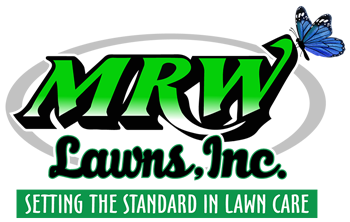Signs you may need to replace, refresh, or scale back your mulching.
Visually, mulch can offer color and contrast to your landscaping; but the benefits can run root deep. When applied properly, mulch protects root systems by preserving moisture, moderating soil temperatures, and reducing weeds. When it’s not applied or maintained over time with best practices, mulch can:
- Invite unwanted guests by attracting rodents and pests.
- Waste your other landscaping investments. Old or over-saturated mulch can harbor diseases, and promote the decay of trees and flowers.
- Keep your lawn from looking its best by disrupting dormancy and natural patterns essential to the growth of trees, shrubbery, and other ornamentals.
- Cause property damage by interfering with proper drainage of your lawn, potentially directing water towards structures and foundations.
Done right, mulch should last years and be simple to maintain, but it’s also deceptively easy to make mistakes. The experts in our landscape division talk 1:1 with homeowners about the right type of mulch for your project, planning your lawn around your needs and long-term habits, and industry insights and management practices for preventing soil erosion, run-off, and more.
Four signs you need to replace or amend your mulch…
- Looks bad or smells bad. Signs of mold or slimy fungus indicate a need to rehab your mulch, and sour smells are definitely an indicator that acids and sulfur compounds are off in your mix.
- When measured, you have less than 2 full inches. While mulch is meant to break down over time and enrich the soil, the benefits of the product are lost at lower/thinner volumes.
- Infested with insects. Wood mulch in particular can attract termites, carpenter ants, cockroaches, and more. Left to establish themselves, they could migrate to your home.
- You just don’t like it. It’s your lawn, and we’re here to help you achieve the look and feel you want for your property while still maintaining sound agronomic and environmental practices.
CALL US TODAY AND BOOK YOUR LANDSCAPING CONSULTATION

